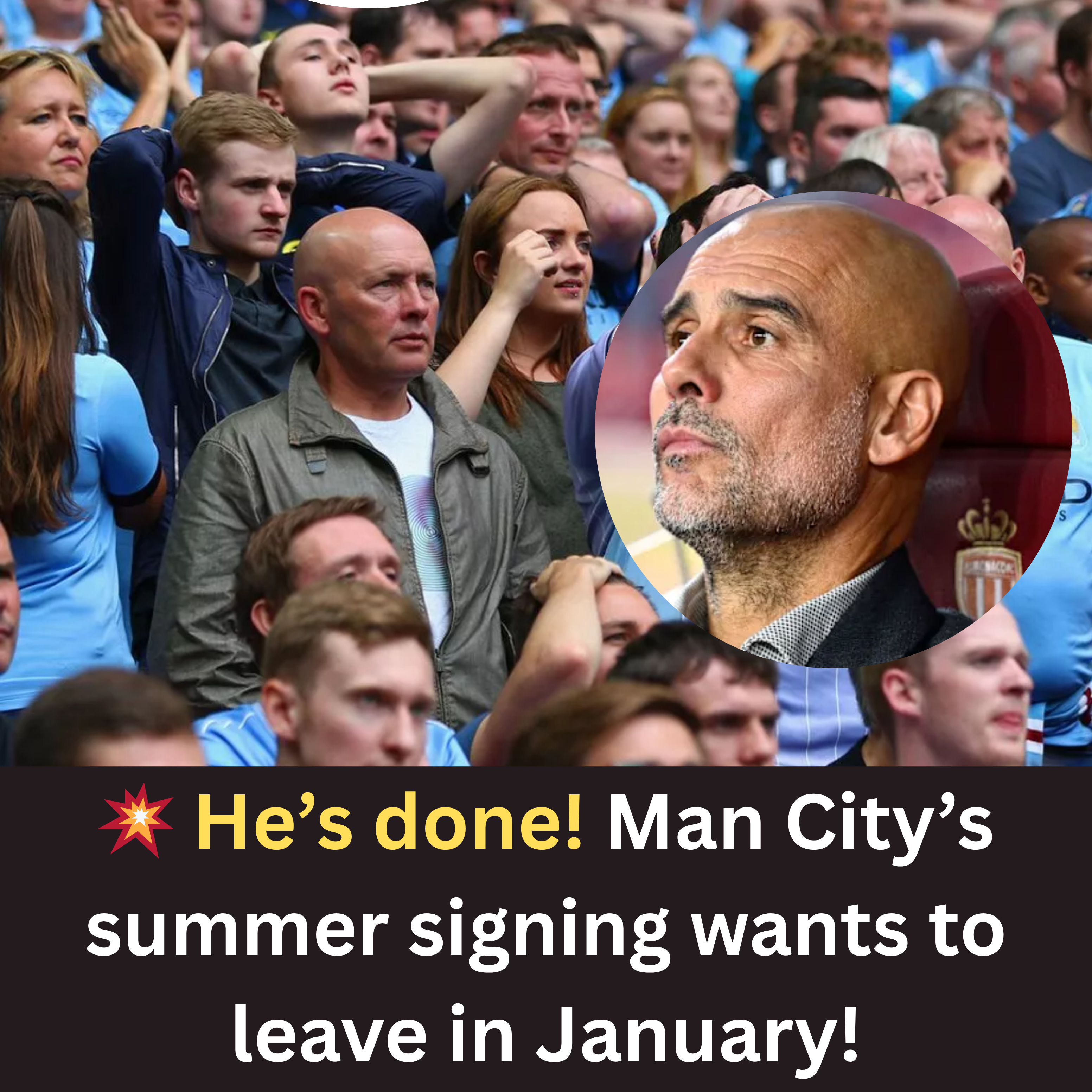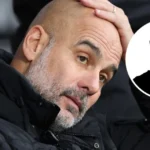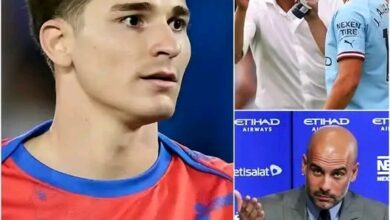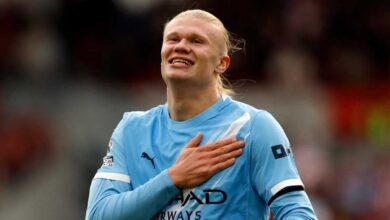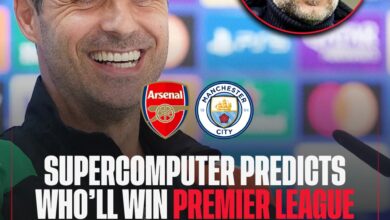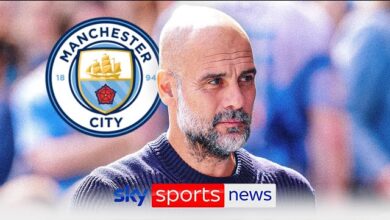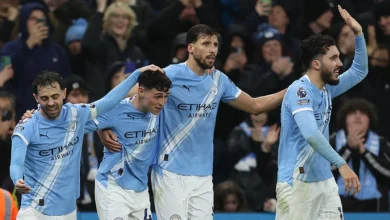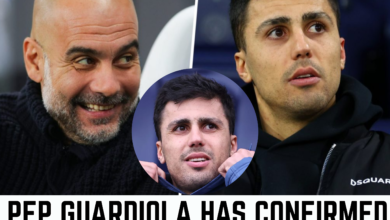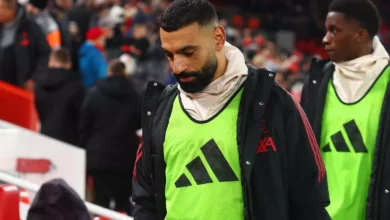Man City finalise surprise signing as Guardiola untouchable agrees to join new club
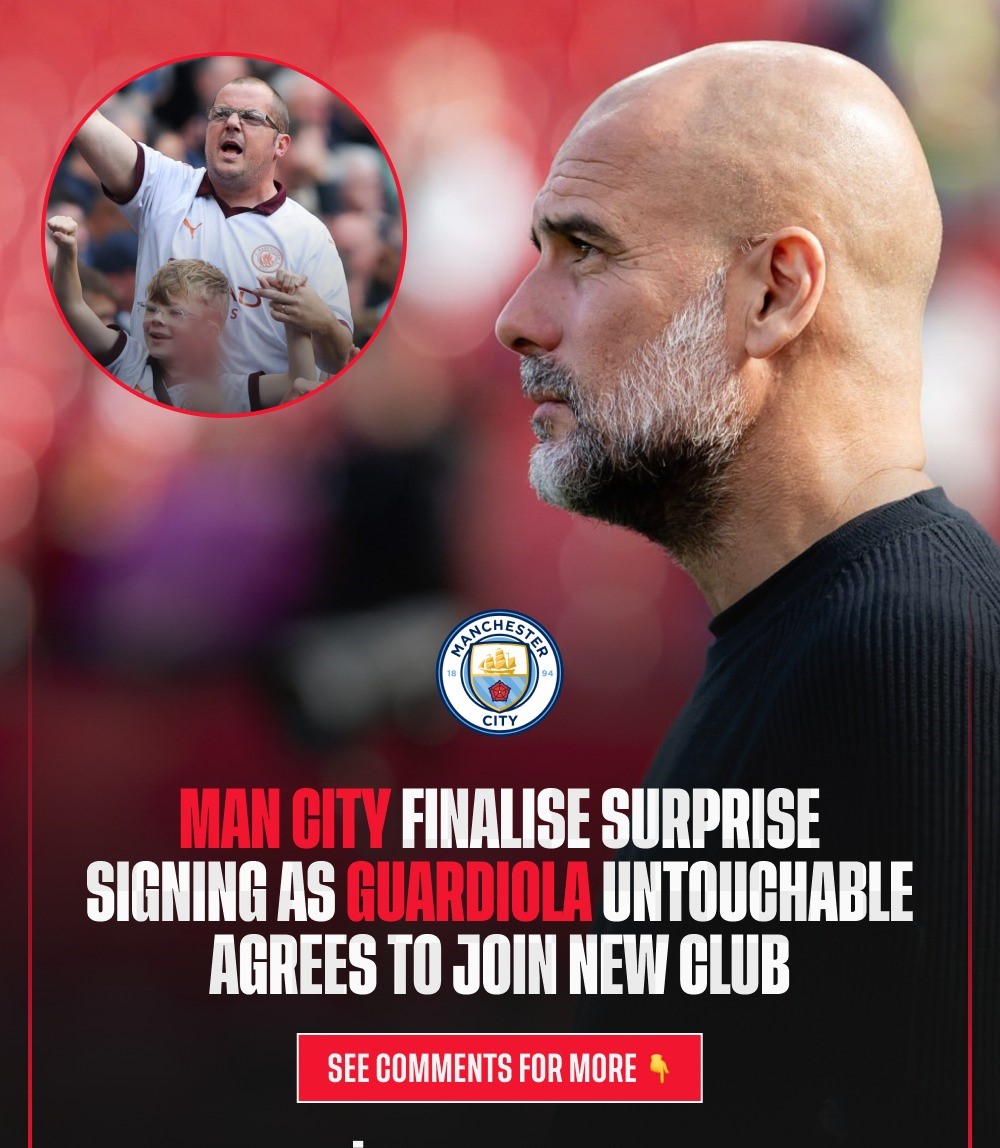
The potential departure of Ederson Moraes, the Brazilian shot-stopper who has been synonymous with Manchester City’s success over the past eight seasons, represents more than just a simple transfer. It marks the end of an era and the beginning of what could be a fascinating new chapter in the club’s illustrious history. With Galatasaray circling with increasing confidence and personal terms reportedly already agreed, the stage is set for one of the summer’s most intriguing goalkeeper moves.
Enter James Trafford, the 22-year-old Burnley goalkeeper whose meteoric rise through the footballing ranks has captured the attention of his former club. The young Englishman, who left Manchester City’s academy system in 2023, now finds himself at the center of a potential homecoming that could see him become the first-choice goalkeeper at one of the world’s most successful clubs. This narrative of departure, development, and return embodies the modern football transfer market’s complexity and the unpredictable nature of player development pathways.
The implications of this potential double deal extend far beyond the immediate tactical considerations. For Manchester City, it represents a shift toward youth and long-term planning, while for Trafford, it offers the opportunity to fulfill a childhood dream and establish himself among Europe’s elite goalkeepers. The story also highlights the effectiveness of City’s academy system and their strategic use of buy-back clauses in player development.
Ederson’s Legacy: Eight Years of Excellence
Before examining the future, it is essential to acknowledge the remarkable contribution that Ederson has made to Manchester City’s unprecedented success over the past decade. The Brazilian goalkeeper, who arrived from Benfica in 2017 for what was then a significant fee, has redefined the role of the modern goalkeeper and become an integral part of Guardiola’s tactical system.
Ederson’s impact at Manchester City cannot be measured solely in traditional goalkeeping statistics, though his record in that regard is exemplary. With over 330 appearances for the club across all competitions, he has been instrumental in securing multiple Premier League titles, domestic cups, and the coveted Champions League trophy that eluded the club for so long. His consistency and reliability have made him one of the first names on Guardiola’s team sheet, earning him the status of an “untouchable” within the squad hierarchy.
What truly sets Ederson apart from his contemporaries is his exceptional distribution ability and comfort with the ball at his feet. In Guardiola’s possession-based system, the goalkeeper functions as an additional outfield player, capable of launching attacks with pinpoint long passes or participating in intricate build-up play from the back. Ederson’s technical skills in this regard have been crucial to City’s tactical evolution and their ability to dominate possession in matches.
The Brazilian’s shot-stopping abilities, while sometimes overshadowed by his distribution skills, have been consistently excellent throughout his tenure. His agility, positioning, and decision-making in one-on-one situations have saved City countless points over the years. Perhaps most importantly, his mental strength and composure under pressure have made him the perfect goalkeeper for Guardiola’s high-risk, high-reward tactical approach.
Ederson’s leadership qualities have also grown significantly during his time at the Etihad Stadium. Initially arriving as a young goalkeeper with potential, he has developed into a vocal presence in the City defense, organizing his back line and communicating effectively with his teammates. This evolution from promising talent to established leader mirrors the club’s own journey during his tenure.
The potential departure of such an influential figure represents a significant challenge for Manchester City’s coaching staff and management. Finding a suitable replacement for a goalkeeper of Ederson’s caliber and tactical importance is no simple task, particularly given the specific requirements of Guardiola’s system. The fact that the club appears confident in pursuing James Trafford as his replacement suggests careful planning and a clear vision for the future.
Galatasaray’s Ambitious Pursuit
The Turkish giants’ interest in Ederson represents a significant statement of intent from a club with ambitious European aspirations. Galatasaray, one of Turkey’s most successful and historically significant clubs, have identified the Brazilian goalkeeper as a key target in their efforts to compete at the highest level of European football.
Reports suggesting that personal terms have already been agreed between Ederson and Galatasaray indicate that negotiations have progressed significantly beyond initial interest. This development suggests that the Turkish club has been able to meet the financial demands of one of the world’s premier goalkeepers, demonstrating their commitment to attracting elite talent.
For Ederson, the move to Galatasaray would represent a new challenge and the opportunity to experience a different footballing culture. At 30 years of age, he remains at the peak of his powers and could provide several years of excellent service to his new club. The prospect of playing in the Champions League with Galatasaray, competing against Europe’s elite clubs, would likely appeal to a goalkeeper of his ambition and competitive nature.
The Turkish Super Liga has undergone significant development in recent years, with several clubs investing heavily in infrastructure and player recruitment. Galatasaray’s pursuit of Ederson fits within this broader trend of Turkish clubs seeking to establish themselves as serious players in the European transfer market. The acquisition of a goalkeeper of Ederson’s caliber would represent a major coup and send a clear message about the club’s ambitions.
From a tactical perspective, Ederson’s playing style would be well-suited to Turkish football, where technical ability and ball distribution are highly valued. His experience in high-pressure situations and major competitions would provide valuable leadership for Galatasaray’s younger players, while his shot-stopping abilities would immediately improve their defensive stability.
The financial aspects of the potential deal also highlight the changing economics of football in different markets. While Premier League clubs continue to dominate global transfer spending, clubs from other leagues are increasingly able to compete for elite talent through strategic investment and attractive project presentations.
James Trafford: The Prodigal Son Returns
The story of James Trafford’s potential return to Manchester City reads like a modern football fairy tale, complete with early promise, temporary setback, remarkable development, and the possibility of ultimate redemption. The 22-year-old goalkeeper’s journey from City academy graduate to Burnley star and potential City first-choice represents the unpredictable nature of football careers and the importance of patience in player development.
Trafford’s initial connection to Manchester City dates back to his childhood, having joined the club’s academy system at the tender age of 12. This early association with one of England’s most successful clubs provided him with world-class coaching and development opportunities, laying the foundation for his current success. The fact that he has maintained emotional ties to the club throughout his career makes the potential reunion all the more meaningful.
His departure from City in 2023 was initially viewed by many as a necessary step in his development, providing him with the first-team opportunities that were unlikely to be available at the Etihad Stadium given Ederson’s established position. The decision to include a £40 million buy-back clause in his Burnley transfer demonstrated City’s continued faith in his potential and their strategic thinking regarding future squad planning.
The wisdom of this approach has been vindicated by Trafford’s exceptional performances during Burnley’s Championship campaign. His record of 29 clean sheets in a single season represents outstanding consistency and reliability, while his run of over 1000 minutes without conceding a goal demonstrates the mental strength and concentration required at the highest level.
What makes Trafford’s statistics even more impressive is the context in which they were achieved. Championship football is notoriously competitive and unpredictable, with teams employing various tactical approaches and playing styles. For a young goalkeeper to maintain such consistent performance levels throughout a grueling 46-game season speaks volumes about his character and ability.
Trafford’s Premier League experience, gained during Burnley’s brief return to the top flight in the 2023/24 season, provides additional evidence of his readiness for elite-level football. Despite Burnley’s ultimate relegation, his 28 appearances in England’s premier competition demonstrated his ability to compete against the world’s best attackers and adapt to the increased pace and intensity of top-flight football.
The goalkeeper’s technical abilities align well with the requirements of Guardiola’s tactical system. His distribution skills, while perhaps not yet at Ederson’s exceptional level, are certainly adequate for the demands of possession-based football. More importantly, his age and coachability suggest that he could develop these aspects of his game under Guardiola’s expert guidance.
The £40 Million Buy-Back Clause: Strategic Genius
Manchester City’s decision to include a £40 million buy-back clause in James Trafford’s transfer to Burnley represents a masterclass in modern transfer strategy and long-term planning. This mechanism, which has become increasingly common in contemporary football, allows clubs to maintain control over promising players even after their departure while providing those players with the development opportunities they need.
The £40 million valuation, which seemed ambitious when inserted into the original deal, now appears remarkably prescient given Trafford’s rapid development and the current goalkeeper market conditions. Elite goalkeepers routinely command transfer fees in excess of this amount, making the buy-back clause potentially one of the most valuable assets in City’s portfolio.
From a financial perspective, the buy-back clause represents excellent value for Manchester City. Rather than paying the premium prices typically associated with established international goalkeepers, they can secure a proven performer who has demonstrated his abilities in competitive environments. The clause also eliminates the uncertainty typically associated with major transfers, as City already have detailed knowledge of Trafford’s character, work ethic, and potential.
The psychological impact of the buy-back clause should not be underestimated either. For Trafford, knowing that his former club retained such strong interest in his development likely provided additional motivation during his time at Burnley. The knowledge that his performances could lead to a return to the Etihad Stadium may have contributed to his exceptional consistency and determination to succeed.
For Burnley, the buy-back clause represented a necessary compromise in order to secure the services of a highly-rated young goalkeeper. While they undoubtedly would prefer to retain Trafford’s services long-term, the financial benefits of the arrangement and the opportunity to develop a player of his caliber made the deal attractive despite its potential temporary nature.
The broader implications of successful buy-back clause utilization extend beyond individual transfers. Other clubs will undoubtedly study City’s approach and consider similar mechanisms in their own player trading strategies. This could lead to a more sophisticated transfer market where clubs maintain longer-term relationships with promising players rather than severing ties completely upon departure.
Guardiola’s Tactical Vision: The Modern Goalkeeper
Pep Guardiola’s approach to goalkeeper selection and development has consistently demonstrated his understanding of the position’s evolving role in modern football. His preference for technically gifted shot-stoppers who can contribute to team play with their feet reflects broader tactical trends and his specific philosophical approach to the game.
The potential selection of James Trafford as Ederson’s replacement would represent both continuity and evolution in Guardiola’s goalkeeping preferences. While Trafford may not possess all of Ederson’s exceptional qualities immediately, his age and development potential make him an attractive long-term project for the Spanish coach.
Guardiola’s track record of improving players through targeted coaching and tactical instruction suggests that Trafford could develop rapidly under his guidance. The coach’s ability to identify and enhance specific technical skills, combined with his detailed tactical knowledge, could help the young goalkeeper reach new levels of performance.
The timing of this potential transition also aligns with Guardiola’s broader squad planning approach. Rather than seeking short-term solutions, the coach appears focused on building a team capable of sustained success over multiple seasons. Trafford’s age profile fits perfectly within this strategy, offering the possibility of stability in the goalkeeping position for many years to come.
From a tactical standpoint, Trafford’s integration into City’s system would likely involve intensive coaching on ball distribution and positioning during build-up play. These skills, while learnable, require consistent practice and match experience to master fully. Guardiola’s coaching staff have extensive experience in developing these specific capabilities, having worked with various goalkeepers throughout his tenure.
Championship Excellence: Trafford’s Burnley Breakthrough
James Trafford’s performances during Burnley’s Championship campaign deserve detailed examination, as they provide the clearest indication of his readiness for elite-level football. The statistics alone paint an impressive picture, but the context and manner of his achievements offer even more compelling evidence of his exceptional abilities.
The achievement of 29 clean sheets in a single Championship season places Trafford among the competition’s elite goalkeepers and demonstrates remarkable consistency over a demanding campaign. This figure becomes even more impressive when considering the tactical variety and competitive intensity that characterizes England’s second tier.
His record run of over 1000 minutes without conceding a goal represents extraordinary concentration and positioning over an extended period. Such achievements require not only technical excellence but also mental fortitude and the ability to maintain focus during periods of limited action. These psychological attributes are crucial for success at the highest level of football.
The defensive stability that Trafford provided allowed Burnley to build their promotion campaign on solid foundations. His distribution from the back often initiated attacking moves, while his shot-stopping abilities provided confidence for outfield players to commit to attacking positions. This comprehensive contribution to team performance demonstrates his understanding of the modern goalkeeper’s role.
Trafford’s performances in crucial matches throughout the season further highlighted his mental strength and reliability under pressure. Championship promotion races are notoriously intense, with individual errors often proving costly in the final standings. His ability to perform consistently in high-stakes situations bodes well for potential future success at Manchester City.
The technical aspects of his game that impressed most during the Burnley campaign included his positioning, reflexes, and decision-making in one-on-one situations. These fundamental goalkeeping skills, combined with his improving distribution abilities, suggest a well-rounded player capable of adapting to different tactical requirements.
Premier League Experience: Learning from Adversity
Trafford’s stint in the Premier League during Burnley’s 2023/24 campaign, while ultimately ending in relegation for his club, provided invaluable experience and learning opportunities for the young goalkeeper. His 28 appearances in England’s top flight offered exposure to the world’s best attackers and the unique challenges of elite-level football.
The relegation experience, rather than representing failure, likely contributed significantly to Trafford’s development as both a player and person. Learning to maintain performance standards and motivation during difficult periods is a crucial skill for any professional footballer, particularly goalkeepers who often bear significant responsibility for team results.
His performances against top-six opposition during this period demonstrated his ability to compete at the highest level. Facing attacks featuring world-class players like Erling Haaland, Mohamed Salah, and Bukayo Saka provided educational experiences that cannot be replicated in training environments.
The statistical analysis of Trafford’s Premier League performances reveals promising underlying numbers despite Burnley’s struggles. His save percentage and distribution accuracy remained consistent with his Championship form, suggesting that the step up in quality did not negatively impact his fundamental abilities.
Perhaps most importantly, the Premier League experience helped Trafford understand the physical and mental demands of elite football. The increased pace of play, tactical sophistication of opponents, and media scrutiny all contribute to a unique environment that requires specific adaptation skills.
The Academy Connection: Full Circle Journey
James Trafford’s potential return to Manchester City represents more than just a transfer; it symbolizes the success of the club’s academy system and their long-term approach to player development. His journey from 12-year-old academy recruit to potential first-team goalkeeper demonstrates the value of patience and strategic planning in modern football.
The Academy’s role in Trafford’s early development cannot be overstated. The technical foundation, tactical understanding, and professional standards instilled during his formative years have clearly contributed to his current success. The fact that these early lessons have translated into professional achievement validates the quality of City’s youth development programs.
Trafford’s emotional connection to the club, fostered during his academy years, adds an intangible element to his potential return. Players who have genuine affection for their clubs often perform with additional motivation and commitment, qualities that can prove decisive in crucial moments.
The success of Trafford’s development path could influence Manchester City’s future approach to academy graduates. Rather than viewing permanent sales as the end of relationships with promising players, the club may increasingly utilize loan deals and buy-back clauses to maintain long-term connections.
From a broader perspective, Trafford’s story provides inspiration for current academy players who may question their chances of breaking into the first team. His journey demonstrates that alternative pathways can lead to the same ultimate destination, encouraging patience and continued development efforts.
Financial Implications and Market Dynamics
The financial aspects of the potential Trafford signing reflect broader trends in the goalkeeper transfer market and Manchester City’s strategic approach to squad investment. The £40 million buy-back fee, while substantial, represents relatively good value in the current market for established international goalkeepers.
Recent transfers of elite shot-stoppers have regularly exceeded this figure, with clubs paying premium prices for proven performers. City’s ability to secure Trafford at a predetermined price provides budget certainty and allows for more strategic planning in other areas of the squad.
The economic efficiency of the buy-back approach becomes even more apparent when considering the total cost of Trafford’s development. Rather than investing years and resources in developing an untested academy graduate, City have essentially outsourced this process to Burnley while maintaining ultimate control over the outcome.
From Burnley’s perspective, the financial windfall from Trafford’s departure would provide significant resources for squad strengthening and infrastructure development. This mutually beneficial arrangement demonstrates how creative transfer structures can serve multiple parties’ interests simultaneously.
The broader implications for goalkeeper valuations could be significant if Trafford succeeds at Manchester City. His success would validate the buy-back clause model and potentially influence how other clubs structure similar deals in the future.
Tactical Integration and System Adaptation
The process of integrating James Trafford into Manchester City’s tactical system would require careful planning and gradual implementation. While his fundamental goalkeeping abilities are clearly established, adapting to Guardiola’s specific requirements would likely involve intensive coaching and match experience.
The technical aspects of ball distribution would receive immediate attention, as this skill set forms a crucial component of City’s possession-based approach. Trafford’s accuracy and decision-making with the ball at his feet would need to reach the exceptional standards set by Ederson during his tenure.
Positioning during build-up play represents another area for potential development. City’s goalkeepers often function as sweeper-keepers, advancing significantly from their goal line to provide passing options and compress the playing field. This role requires excellent reading of the game and confidence in decision-making.
Communication with the defensive line would also require attention, as City’s high defensive line depends on constant dialogue between goalkeeper and outfield players. Trafford’s English nationality could actually provide advantages in this regard, facilitating clearer instruction and understanding with teammates.
The psychological aspects of playing for Manchester City, including handling pressure from supporters and media, would represent significant challenges for any young goalkeeper. The club’s sports psychology team would likely play a crucial role in supporting Trafford’s adaptation to this environment.
Long-term Strategic Vision
Manchester City’s potential pursuit of James Trafford reflects a broader strategic vision focused on sustainable success and long-term planning. Rather than seeking short-term solutions, the club appears committed to building a squad capable of competing at the highest level for many years to come.
The age profile of the potential signing aligns perfectly with this approach. At 22, Trafford could provide a decade or more of service to the club, offering stability and continuity in a crucial position. This long-term thinking contrasts with the short-term approaches often adopted in modern football.
The investment in a young, developing goalkeeper also demonstrates confidence in the club’s coaching infrastructure and development capabilities. The belief that Trafford can reach new levels under City’s guidance reflects the quality of their training facilities and coaching expertise.
From a succession planning perspective, the timing of this potential transition appears optimal. Rather than waiting until Ederson’s performance declines significantly, City would be proactively managing the transition while maintaining competitive standards.
The broader implications for squad building could be significant if this approach proves successful. Other positions might be managed similarly, with the club identifying and developing long-term solutions rather than responding reactively to immediate needs.
Conclusion: A New Era Begins
As Manchester City stands on the brink of a significant transition in their goalkeeping position, the potential signing of James Trafford represents far more than a simple player acquisition. It embodies the club’s sophisticated approach to squad management, their commitment to long-term planning, and their ability to identify and develop exceptional talent.
The convergence of factors that have led to this moment – Ederson’s potential departure, Trafford’s remarkable development, and the strategic foresight to include a buy-back clause – demonstrates the complexity and interconnected nature of modern football operations. Success in this environment requires not just financial resources but also strategic thinking, patience, and faith in long-term planning processes.
For James Trafford, the opportunity to return to his boyhood club as their first-choice goalkeeper represents the fulfillment of dreams that began during his youth academy days. The journey through Burnley’s ranks, while perhaps unexpected at the time of his departure, has provided invaluable experience and development that may prove crucial to his future success.
The footballing world will watch with great interest as this story unfolds, as it provides insights into effective talent development, strategic squad planning, and the evolving nature of the goalkeeper position in modern football. Whether Trafford can successfully fill the substantial void left by Ederson’s departure remains to be seen, but his journey to this point suggests he possesses the ability, character, and determination to succeed at the highest level.
Ultimately, this potential transfer represents the cyclical nature of football, where endings lead to new beginnings, and where patient investment in youth development can yield extraordinary returns. As Manchester City prepares for another season of pursuing excellence across multiple competitions, the presence of a young, hungry goalkeeper eager to prove himself at the highest level could provide the perfect foundation for continued success.


